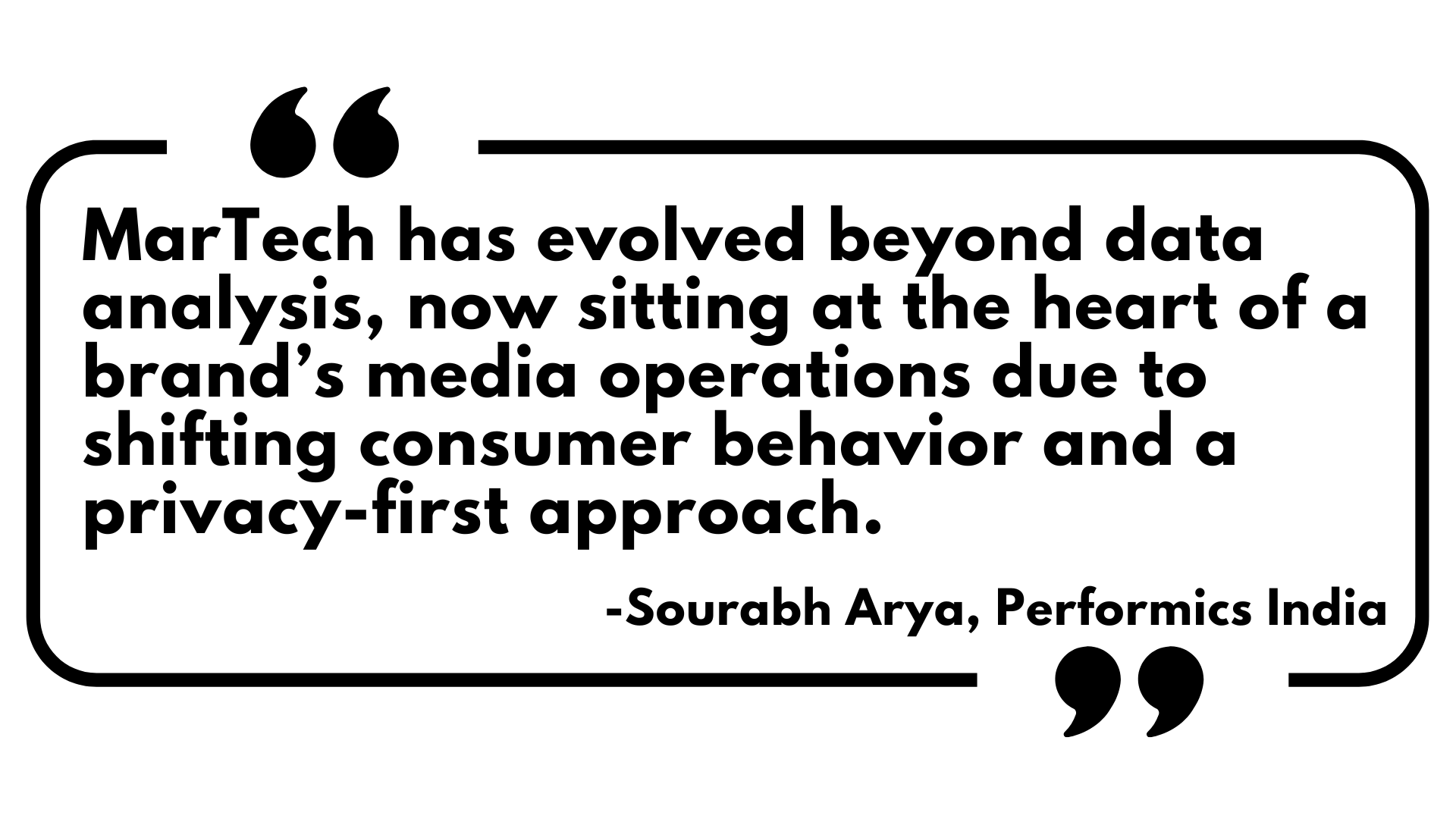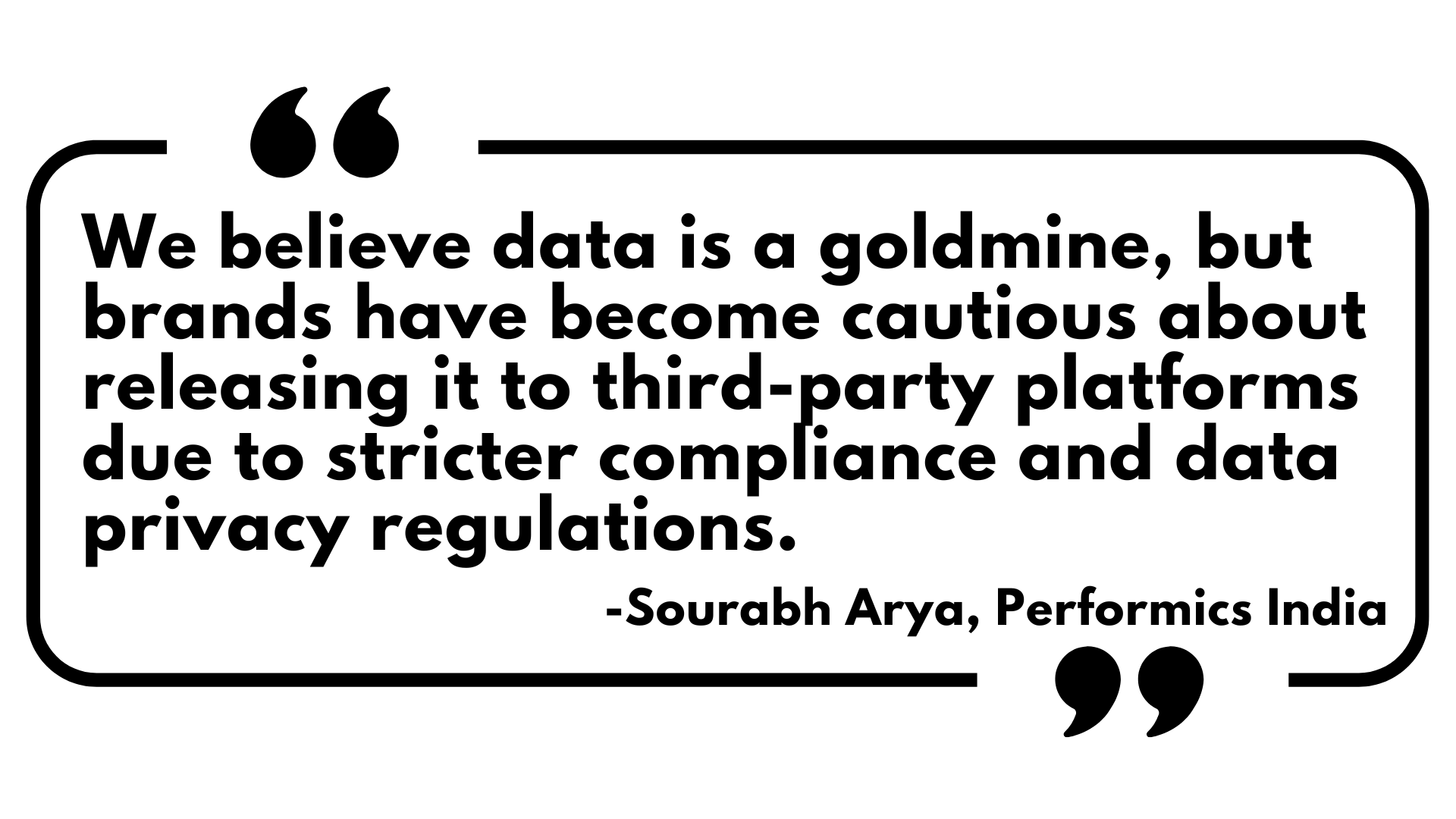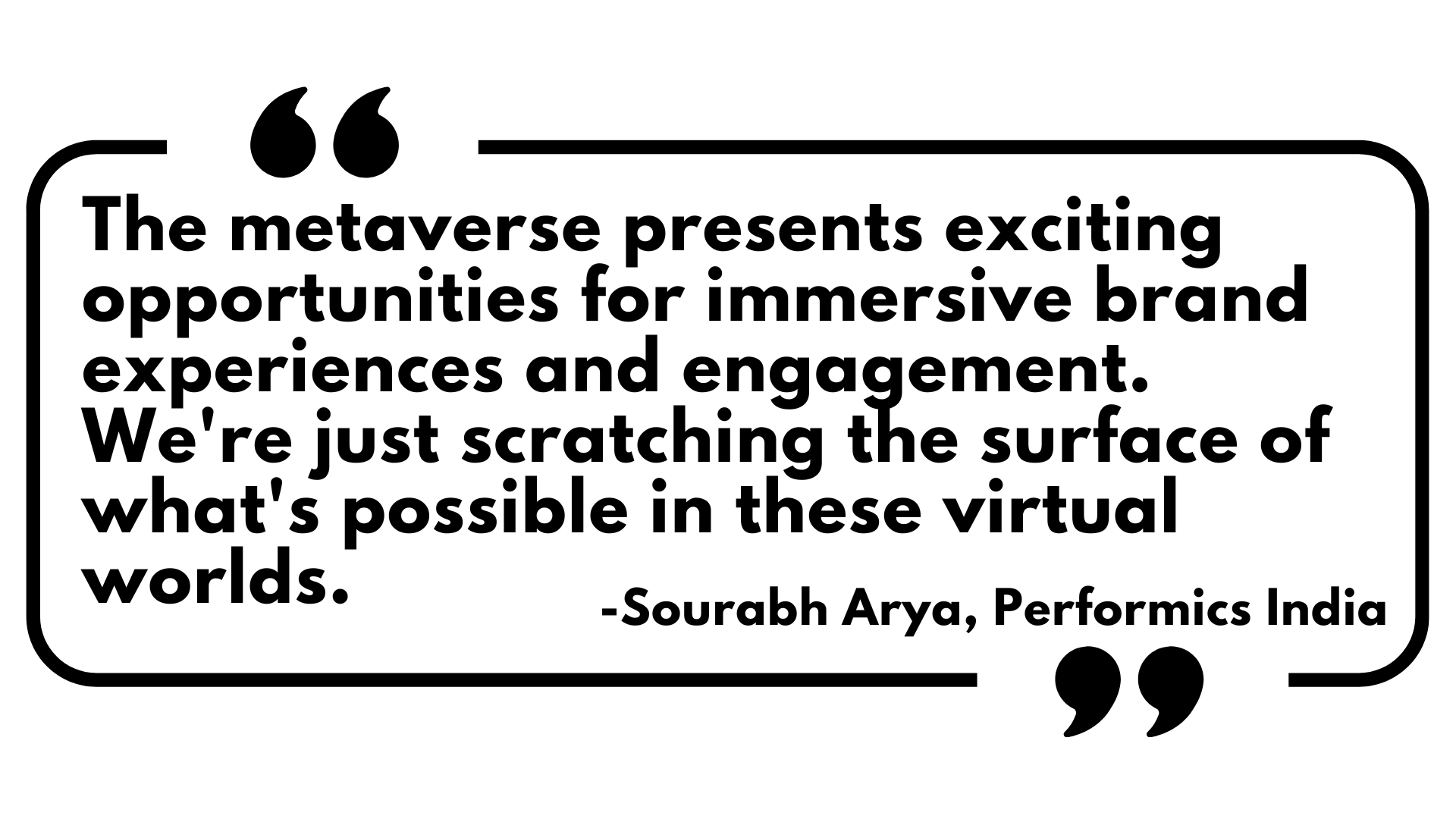
MarTech is a marketing industry sector that has gained recognition in the past couple of years.Can you share some of your milestones with us and how you came about to work in the MarTech industry?
MarTech has evolved beyond data analysis, now sitting at the heart of a brand’s media operations due to shifting consumer behavior and a privacy-first approach.
I began my career as a web developer and have worn many hats while consulting for brands—as a Business and Data Analyst, ML & AI Project Head, Head of Sales, and now, as the Head of AI and MarTech at Performics India (a part of Publicis Groupe). As a computer science engineer, I’ve always been passionate about technology. I enjoy solving challenges related to media, cloud, and analytics.
I’ve consistently sought opportunities to deepen my expertise in MarTech platforms, data analytics, and emerging technologies. Today, I’m proud to lead a team that delivers cutting-edge solutions for our clients, leveraging the power of cloud and analytics stacks.
One of my milestones this year was earning certification as a Meta Marketing Science Professional, and I’m incredibly honored to be recognized as one of the Digital 40 Under 40 in India by E4M.
What emerging technologies in MarTech are you looking forward to that would significantly shape the future of marketing?
● Privacy-First Solutions: With increasing data privacy concerns, technologies like differential privacy and federated learning will be crucial in enabling marketers to glean insights while respecting user privacy.
● Hyper-Personalization at Scale: AI and machine learning are paving the way for hyper-personalization. We’ll see more sophisticated algorithms that analyze vast datasets to deliver highly tailored experiences across all touchpoints.
● The Metaverse and Web3: The metaverse presents exciting opportunities for immersive brand experiences and engagement. We’re just scratching the surface of what’s possible in these virtual worlds.
● Zero-Party Data and CDPs: As third-party cookies fade, building direct relationships with customers and leveraging zero-party data through robust Customer Data Platforms (CDPs) will be paramount.

As you stated, you prefer building custom solutions using the GMP and GCP stacks. Can you provide some examples of how these stacks have produced measurable results?
Over the years, working with different martech tools, I have become platform-agnostic and crafted solutions for clients based on their requirements. While I do not have a bias for any platform, I love working with the GMP and GCP stack due to its smooth integration capabilities. The flexibility and scalability of GMP and GCP have allowed us to create bespoke solutions that address unique client
challenges. For example:
● We recently deployed India’s first CRO experiment for one of the leading insurance company in India. The native integration between Analytics, the Experimentation platform(VWO), and the Media platform (Google Ads) enabled the brand to improve the digital conversion rates by 35% and reduce their cost per lead by 40%. In September, we won “GOLD” in the BFSI category at the ET MarTech Awards in Gurgaon for this experiment.
● Aapka Painter, a Pidilite-backed brand, used Performics’ AI-driven CRO program, boosting website leads by 40%.
● In 2019, I deployed the first ML solution for a major term insurance company in
India, improving call center conversion rates and driving 22% higher conversions and 35% more leads.
I’m also a fan of Adobe’s RTCDP, and we’re deploying real-time, hyper-personalized solutions for a CPG brand in India and Europe.

Google’s recent decision to not deprecate its third-party cookies was not as shocking as it was surprising. What implications do you feel will this decision have on the future of the marketing industry?
While the delay provides some breathing room, the writing is on the wall for third-party cookies. This situation reinforces the need for marketers to:
● Prioritize First-Party Data Strategies: Building direct relationships with customers and collecting consent-based data will be crucial.
● Explore Alternative Identity Solutions: We’ll see increased adoption of technologies like Unified ID 2.0 and contextual advertising to target audiences effectively.
● Embrace Privacy-Enhancing Technologies: Brands need to invest in solutions that enable personalized advertising while respecting user privacy. Having a dedicated consent management system helps achieve this.
● Innovation in Tracking Technologies: The delay provides a window for innovation. We can expect to see the development of new technologies that balance effective tracking with user privacy, such as Federated Learning of Cohorts (FLoC) and other privacy-preserving solutions.
At Performics India, we launched a Third-Party Cookie Readiness Framework and Audit to help brands assess their preparedness for cookie deprecation and determine the next steps for their media operations.

Can you provide some insights into how Publicis AI helps its clients achieve the desired businessresults and how it differs from its competitors ?
At the Group level, we’ve made significant investments in AI, including providing premium versions of leading platforms like ChatGPT 4.0, Gemini 1.5 Pro, and DALLe to all employees.
Additionally, Publicis Groupe is consolidating all data within every aspect of its operations under one single entity called CoreAI. Additionally, it has put AI at the centre of everything it does, restructuring Publicis Sapient, acquiring Epsilon, and creating a Country Model with a single P&L to ensure everyone can access best-in-class capabilities. It has also expanded its global delivery model and created Marcel to enhance collaboration and productivity.
At Performics India, we’ve built solutions like “Performing Funnels,” which help brands use consented behavioural data to identify high-intent, high-value customers for prioritization. This has resulted in improved campaign CTRs, engagement rates, conversion rates, upsells/cross-sells, and customer lifetime value.
● We believe data is a goldmine, but brands have become cautious about releasing it to third-party platforms due to stricter compliance and data privacy regulations. Therefore, we develop solutions within client-owned infrastructure, ensuring data governance, ownership, solution control, and scalability.
● Seamless Integration With Existing Ecosystems: We integrate AI solutions into clients’ existing tech stacks, maximizing efficiency with minimal disruption.
● Data-Driven Insights: Our AI delivers actionable insights with a focus on data accuracy, setting us apart from competitors.
● “Insights without activation are like seeds without soil.” We not only provide insights but also handle activation, helping brands achieve their KPIs and business goals. We offer end-to-end consulting and, in most cases, activate the data ourselves.